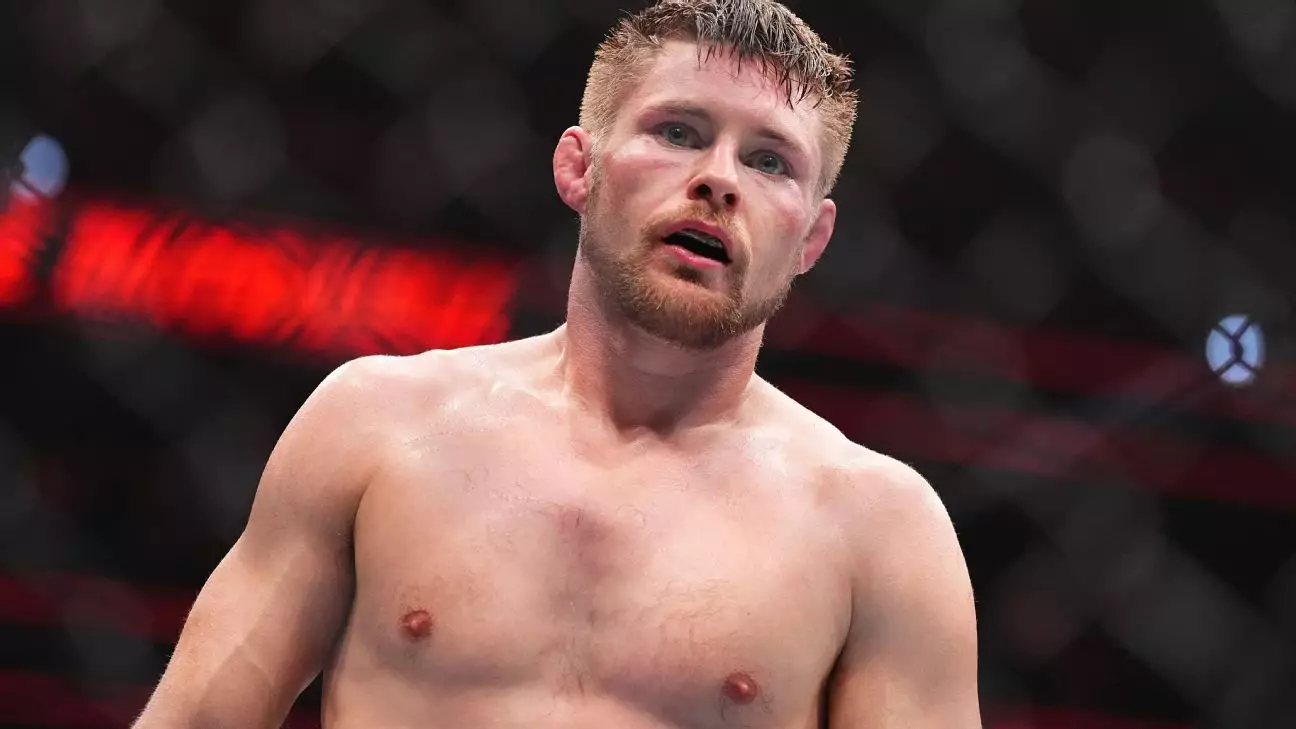In an era where words can travel faster than light through social media, the responsibility that comes with public discourse is paramount. Recently, UFC president Dana White found himself addressing abhorrent remarks made by featherweight fighter Bryce Mitchell. During the inaugural episode of his podcast, “ArkanSanity,” Mitchell made several offensive statements, including praising Adolf Hitler and dismissing the Holocaust. White’s immediate condemnation highlights the importance of accountability in the world of sports and beyond.
Mitchell’s assertions, characterized by hate and misinformation, are not merely provocative—they are dangerous. When he referred to Hitler as a “good guy” who fought for his country, it sent shockwaves through communities that still bear the scars of past atrocities. White’s strong response emphasizes that there is no room for ignorance when discussing historical tragedies like the Holocaust, which resulted in the loss of 6 million Jewish lives. White rightly labels such comments as “beyond disgusting,” showcasing his awareness of the influence athletes have on their audience.
While White acknowledged Mitchell’s right to free speech, he also made it clear that this freedom does not shield him from societal backlash. The crux of the issue lies in the distinction between free speech and responsible speech. White’s comments reflect the reality that just because one can say something, it doesn’t mean they should. Sports personalities wield immense influence, and as such, they must recognize that their words carry weight far beyond their intended audience.
As White pointed out, social media platforms have given a voice to individuals who might otherwise have remained unheard. This democratization of speech can lead to the dissemination of dangerous ideologies if not checked. The backlash from White’s condemnation is a call to arms for media companies to evaluate how they perpetuate harmful narratives. In this digital age, where misinformation can spread like wildfire, it is particularly critical for platforms to take a stand against hate speech and to promote an informed discourse.
Dana White’s decisive response to Bryce Mitchell’s comments serves as a stark reminder of the power dynamics at play in the intersection of sports and speech. While some may view free speech as an absolute right unbounded by consequences, the truth is far more nuanced. The fallout from such remarks may prompt greater scrutiny within the UFC, potentially leading to a more proactive approach toward ensuring that all members uphold respect for human dignity.
Ultimately, the incident represents a pivotal moment for both athletes and organizations. It underscores the need for critical engagement with historical narratives and a commitment to fostering an environment free from hate. As society progresses, it becomes increasingly vital for public figures to serve as role models—exemplifying how words have the power to either uplift or destroy.


Leave a Reply